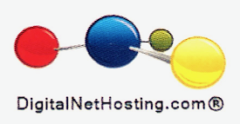Data Center: Build and Manage it in House vs. Outsourcing
Too Big for a Small Business
As businesses began to increase their focus on having reliable and available data centers, data centers began to grow in size and complexity. No longer a single room housing a comparatively simple computer system, businesses now required very large Internet data centers. These large data centers are expensive to run, expensive to maintain, and expensive to staff.
These huge data facilities were out of the reach of many small businesses. These smaller organizations also needed the high speed Internet connectivity and high availability of data, but they did not have the resources to build such physically large and expense data centers. Even the equipment required for such an endeavor was often out of the financial reach of a small business.
The Advent of Data Center Outsourcing
Private data centers became the go-to solution for small to medium business information technology needs. Data center outsourcing grew in popularity, largely because it was a practical and financially more viable solution to the problems created by huge, on-site data centers.
Not only are outsourced data centers more affordable, they also lift much of the heavy responsibility from the business. Disaster recovery, adhering to industry standards, ensuring a secure and hospitable environment for information storage and management, and many other practical concerns can make in-house data centers a logistical nightmare. When organizations place their trust in an off-site data center, they do not need to shoulder this burden alone.
What to Look For in Outsourcing Data Storage
When you outsource your data center responsibilities, you want to be selective in your choice of a data storage partner. Every moment that you network is not up and running, your business is being affected. A high availability data center will place a great deal of emphasis on the following:
– Skilled IT Professionals: A data center is only as good as its staff. Security and networking teams need to be well-trained, skilled, and experienced. Network technicians need to be trained to the highest industry standards.
– Proper Environment: The environment of a data center is of the utmost importance. There must be an uninterruptible power supply or backup generator, a highly sensitive HVAC system to filter air, a fire suppression system, and proper installation of equipment.
– High Level of Security: Your data needs to be protected, and the first level of defense is the physical security of the building. There should be controlled access, video surveillance, and extensive employee background checks.
– Top of the Line Equipment: Network infrastructure is one of the most important aspects of data center planning. When selecting a data center, make sure equipment selection and infrastructure set-up receive the emphasis they deserve.
– Strict Adherence to Standards: Industry standards are around for a reason. They help make sure data centers provide high quality service, maximum availability, and top-shelf security measures.
The Advantage of Outsourcing
In house data centers simply cannot offer the same kind of reliability and economic viability as off-site data centers. An organization must allow its focus to remain on the health of its business operations, rather than getting bogged down in the details of managing data. Outsourcing your data center allows you to keep your focus where it should be: on your own organization.
The complicated and expensive nature of today’s data center needs make it impractical for a company to expend huge amounts of resources on an in-house data center. It just doesn’t make good financial sense. Instead, outsourcing your data center allows you to put those resources back into your company, further strengthening your organization.
Source by A. Nutt

